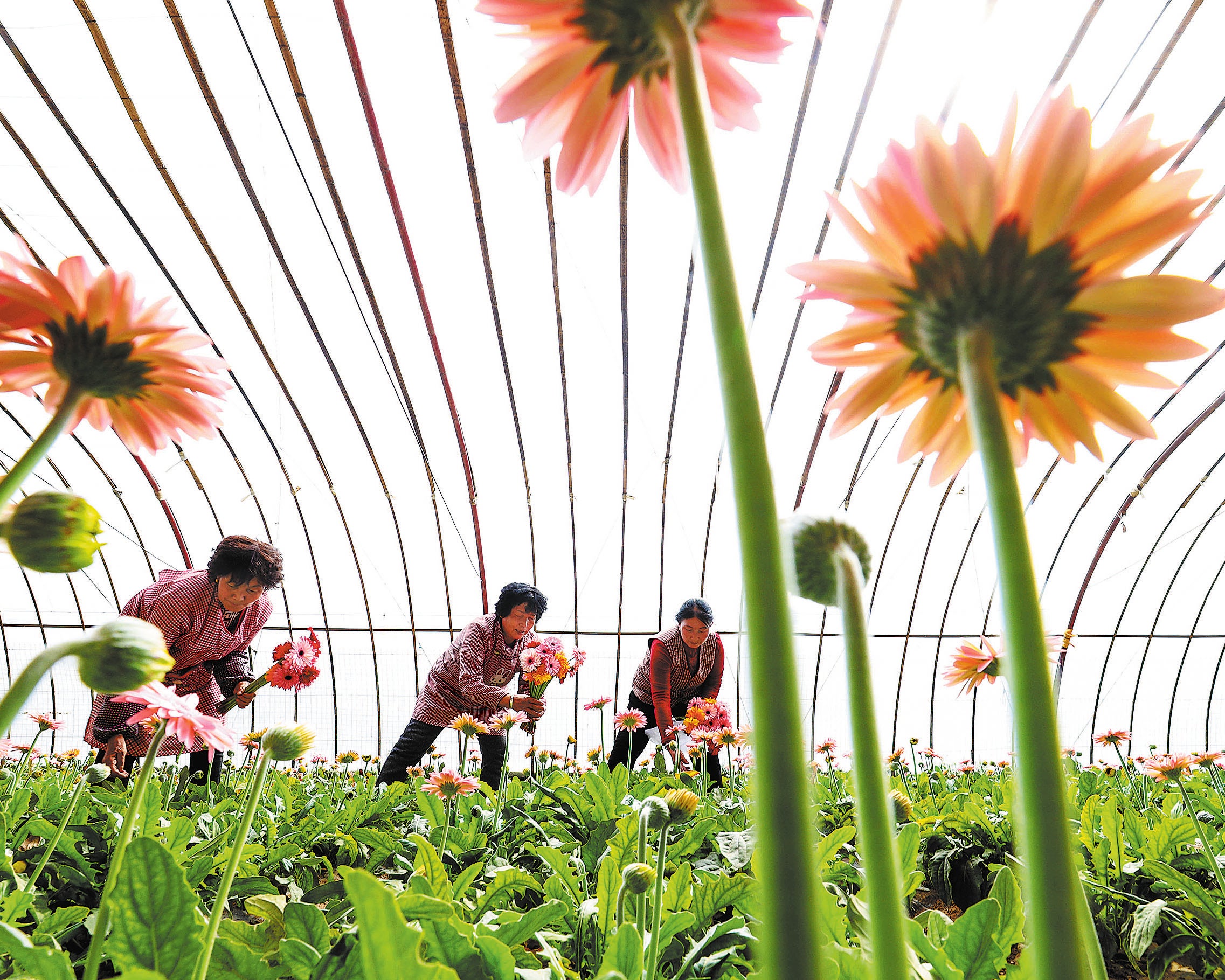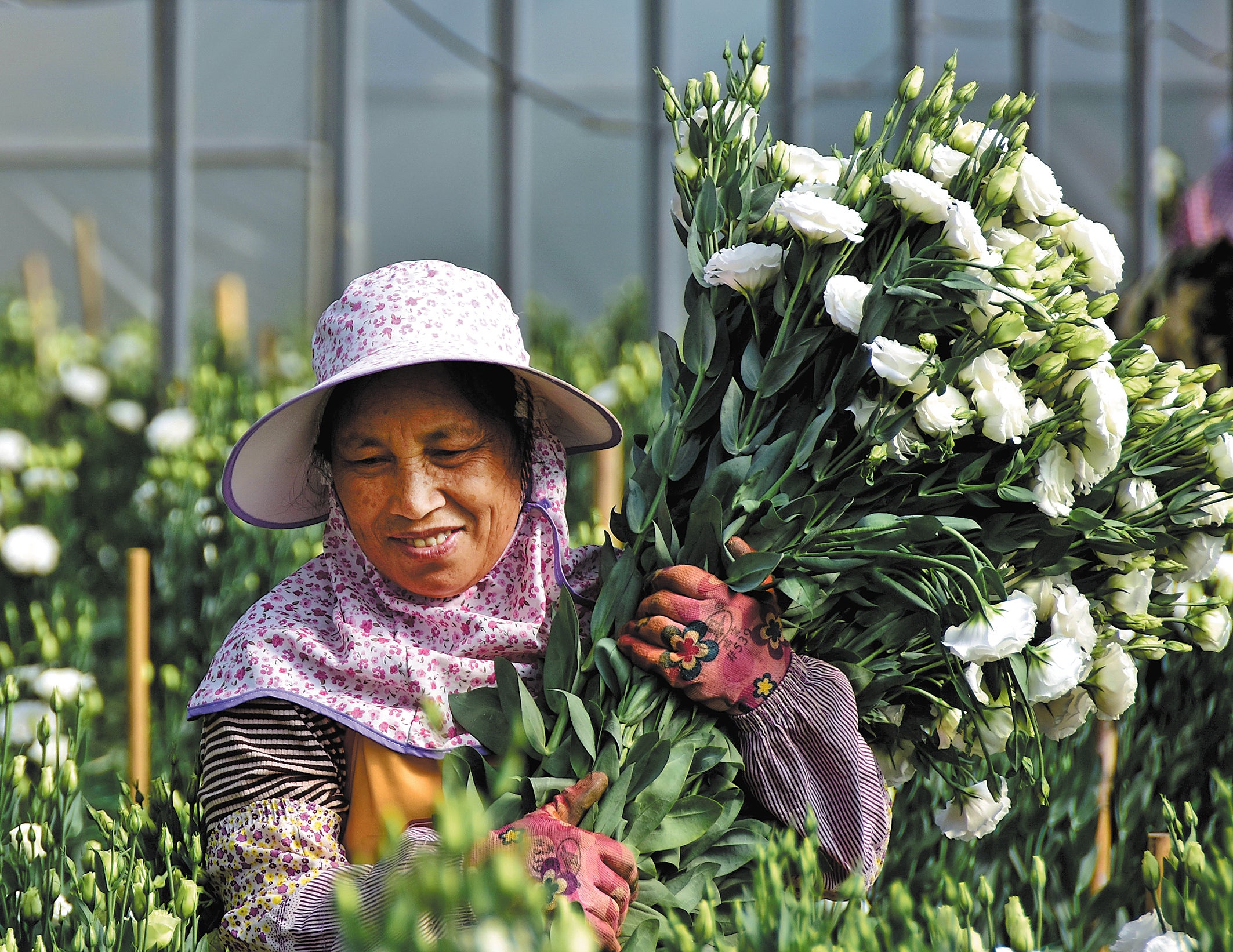Green thumb culture seen blooming
THE ARTICLES ON THESE PAGES ARE PRODUCED BY CHINA DAILY, WHICH TAKES SOLE RESPONSIBILITY FOR THE CONTENTS

Chinese consumers have been increasingly buying flowers and plants to buoy emotions and beautify living spaces as they pursue more diversified and niche varieties, fuelling rosy business growth for retailers.
So far this year, more than 100 million people have purchased flowers, plants and related gardening goods on Alibaba’s e-commerce platform Taobao, with nearly 60 per cent of such customers being female.
The number of buyers has climbed for three straight years, according to a joint report by the School of Agricultural Economics and Rural Development at Renmin University of China, Taobao and Tmall Group.
The traditional notion that flower and plant fans are mainly those with plenty of free time has changed in recent years. Busy urban consumers have found enhanced spiritual sustenance in tending to flowers and houseplants in their leisure time, the report said.
China stands as the largest producer of flowers globally, and an important trader and consumer of the popular commodities. The country has more than 5,000 large-scale flower enterprises, and some 5.3 million people are involved in the sector, according to the China Flower Association.
Shi Xin, a 34-year-old owner of online store Plant X, which mainly sells tropical plants, saw sales revenue at his store hit nearly 20 million yuan (£2.2 million) last year, driven by increasing demand for beautiful tropical plants by those wishing for a more exotic decor in their homes and workplaces.
Chinese plants such as blue jacaranda and Acorus calamus, which are suitable for home embellishment with their distinct appearances, have seen sales surge online lately. Tropical plants such as green velvet alocasia and turtle-backed bamboo have increasingly become a part of the lifestyle of urban residents, the report found.

Shi launched an online store on Taobao in 2019 and quickly began hosting livestreaming sessions.
“Cultivating tropical plants is like buying pop toys for many young consumers, and they highly recognise the value of such plants. Sharing photos of plants with others is also a way of social networking. The repurchase rate of our plants is about 55 per cent,” Shi said.
“We are bullish on the growth potential of tropical plants in China. Some experienced green thumbs even buy 100 or more potted plants each year, with many gifting their purchases. In addition, many people are still unfamiliar with the hobby, so it is believed there will be more sales growth opportunities,” Shi said.
A majority of flower and plant buyers online are people aged between 30 and 49. Among the total, over 40 million are high-income individuals. In particular, consumers from Shanghai, Beijing and Guangzhou, Guangdong province, are most enthusiastic about purchasing flowers, the report said.
The popularity of cultivating tropical plants in China has attracted more people to entrepreneurial endeavours in the sector. Wu Jiafan, in his 30s, used to work in the artificial intelligence sector in Shanghai, and he would like to shift to a new career path.
As luck would have it, he found that the market for online sales of tropical plants is less competitive compared to many other sectors, so he opened online store Jojo Plant on Taobao in 2019.
He said posting alluring plant and flower photos online is important to attract consumers, and the company has developed a group of packing technologies to make sure that when buyers receive their plants, they are in pristine condition.
“This is a beautiful and green sector that is full of positive energy. A few years ago, tropical plants were more expensive and scarce, so it is believed to be a sector filled with business growth opportunities,” Wu said.
“Tropical plants fit with young consumers’ aesthetic demand for something novel and tasteful, and every pot is different. Many plants are synonymous with trends, and some celebrities like to purchase tropical plants, which helps fuel a trend of consumption among younger folks online.”
